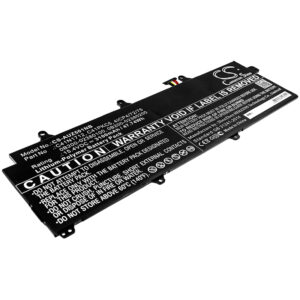-
$71.52
DELL 04K8YH, 092NCT, 0GK5KY, 0WF28, 451-BBKK, 451-BBPG, 4K8YH, 92NCT, CK5KY, GK5KY, P20T, P20T003, RHN1C CS-DE3147NB
DELL11.1VDELL
$71.52Asus 0B200-02380100, 0B200-02380200, 4ICP4/72/75, C41N1712, C41PKC5 CS-AUZ501NB
Asus15.4VAsus
$71.52Asus 70-NXM1B2200Z, 90-NYX1B1000Y, A31-B53, A31-K42, A31-K52, A32-K42, A32-K52, A41-K52, A42-K52, K52L681 CS-AUK52NB
Asus11.1VAsus
$71.52Fujitsu CP568422-01, FMVNBP215, FMVNBP216, FPB0271, FPB0272, FPCBP334, FPCBP335 CS-FUH532NB
Fujitsu10.8VFujitsu
Lithium batteries come in various chemistries, including lithium-ion (Li-ion), lithium polymer (LiPo), and lithium iron phosphate (LiFePO4). Each chemistry has its own set of characteristics, such as energy density, safety, and cost.
Energy Density: One of the primary advantages of lithium batteries is their high energy density, which means they can store a significant amount of energy in a relatively small and lightweight package. This makes them ideal for portable devices where size and weight are crucial factors.
Rechargeability: Lithium batteries are rechargeable, allowing users to charge and discharge them multiple times. They have a relatively low self-discharge rate, which means they can hold their charge for extended periods when not in use.

Get 5% off
Enter your email below and coupon code will be automatically applied to your shopping cart.
















